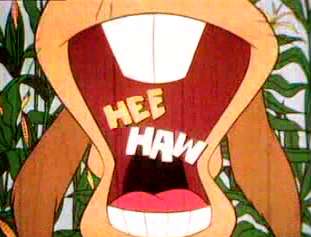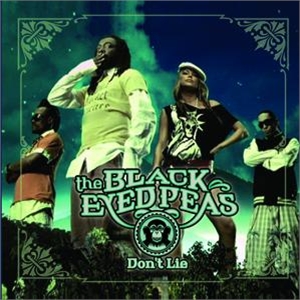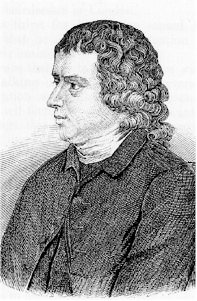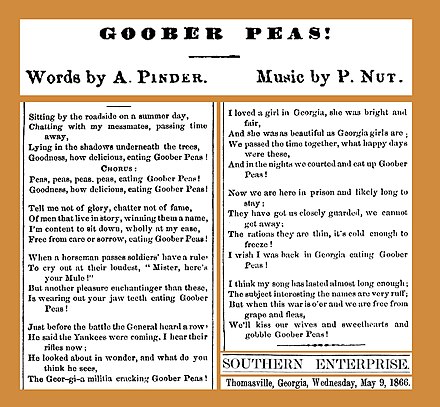
Hee Haw is an American television variety show featuring country music and humor with the fictional rural "Kornfield Kounty" as the backdrop. It aired first-run on CBS from 1969 to 1971, in syndication from 1971 to 1993, and on TNN from 1996 to 1997. Reruns of the series were broadcast on RFD-TV from September 2008 to April 2020, and aired on Circle.

Pindar was an Ancient Greek lyric poet from Thebes. Of the canonical nine lyric poets of ancient Greece, his work is the best preserved. Quintilian wrote, "Of the nine lyric poets, Pindar is by far the greatest, in virtue of his inspired magnificence, the beauty of his thoughts and figures, the rich exuberance of his language and matter, and his rolling flood of eloquence, characteristics which, as Horace rightly held, make him inimitable." His poems can also, however, seem difficult and even peculiar. The Athenian comic playwright Eupolis once remarked that they "are already reduced to silence by the disinclination of the multitude for elegant learning". Some scholars in the modern age also found his poetry perplexing, at least until the 1896 discovery of some poems by his rival Bacchylides; comparisons of their work showed that many of Pindar's idiosyncrasies are typical of archaic genres rather than of only the poet himself. His poetry, while admired by critics, still challenges the casual reader and his work is largely unread among the general public.

"Yankee Doodle" is a traditional American song and a nursery rhyme, the early versions of which predate the Seven Years' War and American Revolution. It is often sung patriotically in the United States today and is the state anthem of Connecticut. Its Roud Folk Song Index number is 4501. The melody is thought to be much older than both the lyrics and the subject, going back to folk songs of Medieval Europe.

"John Brown's Body" is a United States marching song about the abolitionist John Brown. The song was popular in the Union during the American Civil War. The tune arose out of the folk hymn tradition of the American camp meeting movement of the late 18th and early 19th century. According to an 1889 account, the original John Brown lyrics were a collective effort by a group of Union soldiers who were referring both to the famous John Brown and also, humorously, to a Sergeant John Brown of their own battalion. Various other authors have published additional verses or claimed credit for originating the John Brown lyrics and tune.

The "Battle Hymn of the Republic", also known as "Mine Eyes Have Seen the Glory" or "Glory, Glory Hallelujah" outside of the United States, is a popular American patriotic song written by the abolitionist writer Julia Ward Howe.

"Jingle Bells" is one of the best-known and most commonly sung American songs in the world. It was written by James Lord Pierpont (1822–1893) and published under the title "The One Horse Open Sleigh" in the autumn of 1857. It has been claimed that it was originally written to be sung by a Sunday school choir for Thanksgiving, or as a drinking song. Although it has no original connection to Christmas, it became associated with winter and Christmas music in the 1860s and 1870s, and it was featured in a variety of parlor song and college anthologies in the 1880s. It was first recorded in 1889 on an Edison cylinder; this recording, believed to be the first Christmas record, is lost, but an 1898 recording also from Edison Records survives.

"The Bonnie Blue Flag", also known as "We Are a Band of Brothers", is an 1861 marching song associated with the Confederate States of America. The words were written by the entertainer Harry McCarthy, with the melody taken from the song "The Irish Jaunting Car". The song's title refers to the unofficial first flag of the Confederacy, the Bonnie Blue Flag. The left flag on the sheet-music is the Bonnie Blue Flag.

"Ellens dritter Gesang", in English: "Ellen's Third Song", was composed by Franz Schubert in 1825 as part of his Op. 52, a setting of seven songs from Walter Scott's 1810 popular narrative poem The Lady of the Lake, loosely translated into German.

"Don't Lie" is a song performed by American recording group the Black Eyed Peas, taken from their fourth studio album, Monkey Business (2005). It was released as the second single from the album on June 29, 2005, after the successful "Don't Phunk with My Heart".

"Old Dan Tucker," also known as "Ole Dan Tucker," "Dan Tucker," and other variants, is an American popular song. Its origins remain obscure; the tune may have come from oral tradition, and the words may have been written by songwriter and performer Dan Emmett. The blackface troupe the Virginia Minstrels popularized "Old Dan Tucker" in 1843, and it quickly became a minstrel hit, behind only "Miss Lucy Long" and "Mary Blane" in popularity during the antebellum period. "Old Dan Tucker" entered the folk vernacular around the same time. Today it is a bluegrass and country music standard. It is no. 390 in the Roud Folk Song Index.

James Lord Pierpont was an American songwriter, arranger, organist, Confederate States soldier, and composer, best known for writing and composing "Jingle Bells" in 1857, originally titled "The One Horse Open Sleigh". He was born in Boston, Massachusetts, and died in Winter Haven, Florida. His composition "Jingle Bells" has become synonymous with the Christmas holiday and is one of the most performed and most recognizable songs in the world.
Pindarics was a term for a class of loose and irregular odes greatly in fashion in England during the close of the 17th and the beginning of the 18th century. Abraham Cowley, who published fifteen Pindarique Odes in 1656, was the poet most identified with the form though many others had composed irregular verses before him. The term is derived from the name of a Greek archaic poet, Pindar, but is based on a misconception since Pindar's odes were in fact very formal, obeying a triadic structure, in which the form of the first stanza (strophe) was repeated in the second stanza (antistrophe), followed by a third stanza (epode) that introduced variations but whose form was repeated by other epodes in subsequent triads. Cowley's Resurrection, which was considered in the 17th century to be a model of the 'pindaric' style, is a formless poem of sixty-four lines, arbitrarily divided, not into triads, but into four stanzas of unequal volume and structure; the lines which form these stanzas are of lengths varying from three feet to seven feet, with rhymes repeated in no order. It was the looseness of these 'pindarics' that appealed to many poets at the close of the 17th century, including John Dryden, Aphra Behn, and Alexander Pope, and many lesser poets, such as John Oldham, Thomas Otway, Thomas Sprat, John Hughes and Thomas Flatman.

"Come Thou Fount of Every Blessing" is a Christian hymn written by the pastor and hymnodist Robert Robinson, who penned the words in the year 1758 at the age of 22.
"I'm Alabama Bound" is a ragtime melody composed by Robert Hoffman in 1909. Hoffman dedicated it to an M. T. Scarlata. The cover of its first edition, published by Robert Ebberman, New Orleans, 1909, advertises the music as "Also Known As The Alabama Blues" which has led some to suspect it of being one of the first blues songs. However, as written, it is an up-tempo rag with no associated lyrics. The song has been recorded numerous times in different styles—both written and in sound recordings—with a number of different sets of lyrics.
The I–V–vi–IV progression is a common chord progression popular across several genres of music. It involves the I, V, vi, and IV chords of any particular musical scale. For example, in the key of C major, this progression would be: C–G–Am–F. Rotations include:

"BedRock" is the second single by hip hop group/record label Young Money Entertainment from their debut collaboration album, We Are Young Money. It is performed by acts that were signed under Young Money, including rap verses by Lil Wayne, Gudda Gudda, Nicki Minaj as her debut single, Drake, Tyga, Jae Millz, with the chorus performed by Lloyd. It was released as a CD in the United Kingdom on March 22, 2010. "BedRock" is also featured as a bonus track on the Japanese, New Zealand, and the "Complete Edition" 2020 reissue editions of Nicki Minaj's debut studio album, Pink Friday.
Here's your mule or Where's my mule? was a Confederate catch phrase during the Civil War, often noted in Civil War histories. It resulted in several Civil War songs, including "Here's Your Mule", "How Are You? John Morgan", and "Turchin's Got Your Mule". It is also credited with contributing to General Bragg's failure to rally his troops at Missionary Ridge.
Choral poetry is a type of lyric poetry that was created by the ancient Greeks and performed by choruses. Originally, it was accompanied by a lyre, a string instrument like a small U-shaped harp commonly used during Greek classical antiquity and later periods. Other accompanying instruments in later years included other string instruments such as the kithara, barbiton, and phorminx, as well as wind instruments such as the aulos, a double-reeded instrument similar to an oboe.

Ulla! min Ulla! säj, får jag dig bjuda, is one of the Swedish poet and performer Carl Michael Bellman's best-known and best-loved songs, from his 1790 collection, Fredman's Epistles, where it is No. 71. A pastorale, it depicts the Rococo muse Ulla Winblad, as the narrator offers her "reddest strawberries in milk and wine" in the Djurgården countryside north of Stockholm.

"Girl Like Me" is a song by American group Black Eyed Peas and Colombian singer and songwriter Shakira. Originally conceived in 2008 and later considered for will.i.am's fourth studio album #willpower (2013), the song was released on the Black Eyed Peas' eighth studio album, Translation (2020). It was released on December 4, 2020 alongside a Rich Lee-directed music video. The track was written by the Black Eyed Peas, Shakira, Brendan Buckley, Johnny Goldstein, Albert Menendez, and Tim Mitchell and was produced by the group's member will.i.am, Shakira, and Johnny Goldstein. The song was praised for its "anthemic" nature and Shakira's vocals were compared to those she used in her eighth studio album She Wolf (2009). Commercially, the single reached the top ten in twelve countries.

![]() pronunciation ) is a traditional folk song probably originating in the Southern United States. It was popular with Confederate soldiers during the American Civil War, and is still sung frequently in the South to this day. It has been recorded and sung by scores of artists, including Burl Ives, Tennessee Ernie Ford, Rusty Draper and The Kingston Trio.
pronunciation ) is a traditional folk song probably originating in the Southern United States. It was popular with Confederate soldiers during the American Civil War, and is still sung frequently in the South to this day. It has been recorded and sung by scores of artists, including Burl Ives, Tennessee Ernie Ford, Rusty Draper and The Kingston Trio.















